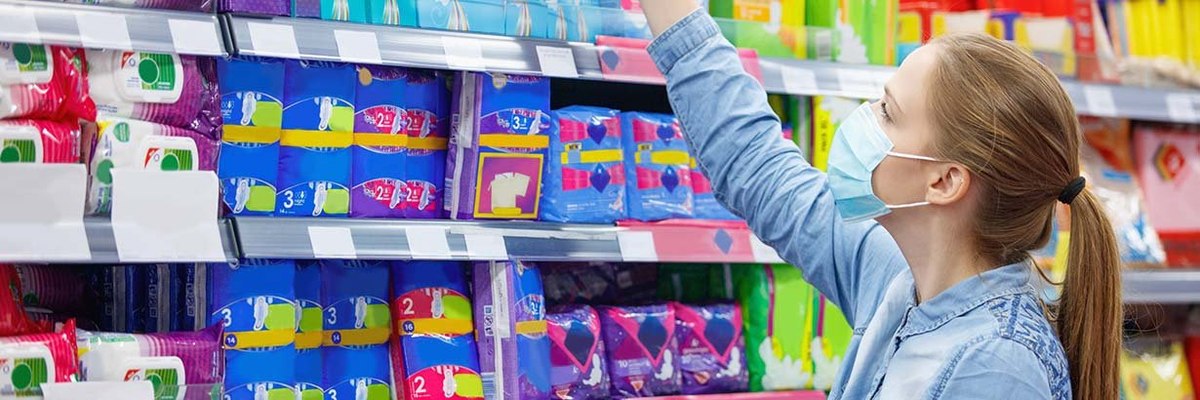Period poverty is a global issue affecting those who don’t have access to safe, hygienic menstrual products, facilities and education. Those who experience period poverty are unable to purchase the menstrual products they need and in many cases, it causes them to be unable to participate in daily life.
How well does the public understand period poverty?
A third of Britons (29%) say they have never heard of the term ‘period poverty’, with men (42%) substantially more likely than women (16%) to say they have no knowledge of the term.
A further 11% of Britons have heard the term, but don’t know what it means, with men again more likely than women to say this (13% vs 9%). Overall, three in five Britons (60%) say they have heard of period poverty and claim to know what it means, including 75% of women but only 45% of men.
But are Britons’ conceptions of what constitutes ‘period poverty’ actually correct? When offered a selection of scenarios, and asked which they think fall under the banner of period poverty, Britons are most likely to think it includes the inability to afford sanitary products (78%). A further four in ten (43%) think it includes the inability to access sanitary products, while 28% think it an inability to access menstrual healthcare counts as period poverty, and 20% say it includes the inability to access menstrual health education.
In fact, according to campaigners and researchers, all four scenarios come under the umbrella of ‘period poverty’, although just 17% of Britons gave such an answer, including 24% of women and 11% of men. Among the slightly more than half of Britons who claimed to know what period poverty is, only 24% correctly identified all four scenarios as fitting under the description.
What do Britons think of measures aimed at alleviating period poverty?
In 2021, the British government abolished the 5% rate of VAT on sanitary products, known as the “tampon tax”. Nevertheless, 48% of Britons think this has not been effective in helping reduce the level of period poverty in the UK, with women are more likely to say the tax was not effective (55%) than men (40%).
In January 2021, Scotland introduced a legal duty on local authorities to ensure that free sanitary products were available to anyone who needs them. Two thirds of Britons (67%) say they would support introducing such a law UK-wide. Women are more supportive than men, with three quarters (75%) saying they would support the law, compared to 60% of men.
How widespread is period poverty in Britain?
Half of Britons (49%) think a great deal or fair amount of period poverty exists in the UK, including 38% of men and 59% of women.
According to our poll, among those who currently have periods – a total of 362 women and transgender men in our sample – (9%) have been unable to afford period products in the last five years, including 6% who have experienced such issues in the last 12 months.
And with the UK facing the biggest income squeeze in nearly 50 years, one in eight (13%) who currently have periods say it is likely that they will be unable to afford period products in the next 12 months.
Photo: Getty








